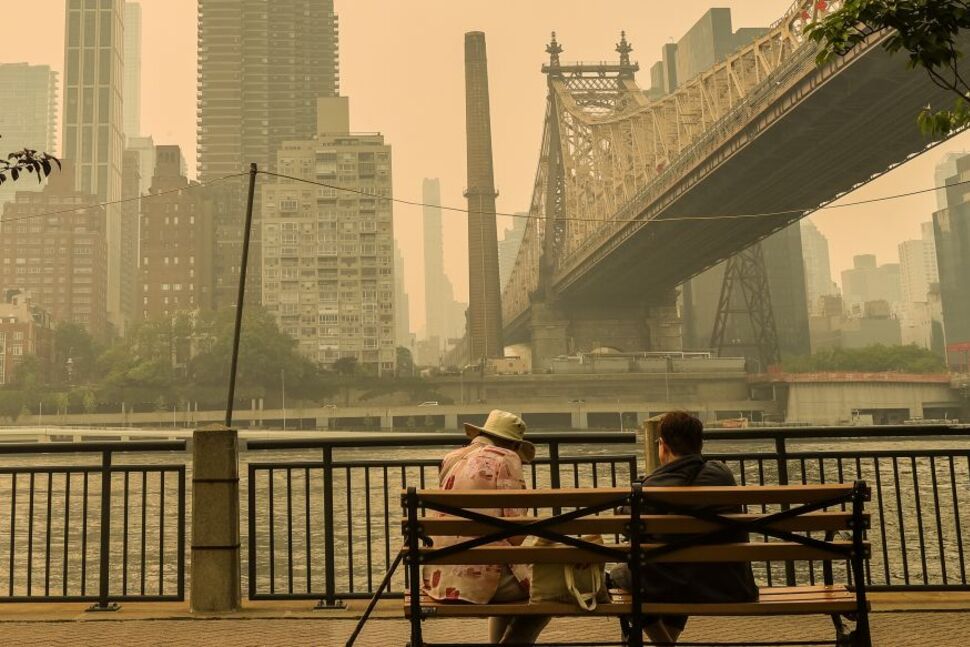Schools training the nation’s future physicians are incorporating climate change into courses, preparing students for challenges posed by the planet’s shifting patterns.
Hugh Shirley remembers that during his first year at Harvard Medical School, he heard a lot of discussion on the effects of climate change, but most of it was in the context of larger conversations about social justice and racial disparities.
Shirley adds, “We talked about how racism and environmental justice intersect and how that impacts how exposed patients are to things like air pollution.” Even though he is restricted to that kind of framework, he claims that understanding the intricate relationships between racism and health, as well as how climate injustice affects both, was enlightening.
Shirley, who is in his third year of medical school, claims that the vocabulary for discussing climate change has expanded. He claims that, in part because of a campaign he helped spearhead, there is now more focus on including information about the problem’s health effects in Harvard’s clinical curriculum. This helps students get ready to face the short- and long-term health risks brought on by the planet’s changing weather patterns and temperature.
According to Shirley, co-leader of the group Students for Environmental Awareness in Medicine, “as students are going through the first-year curriculum, they actually have longitudinal content that is integrated into the different basic science courses and medical science courses that helps explain better, in a more data-driven way, the relationship between climate and health.”
A growing number of medical schools in the United States are making an attempt to include more information about climate change in their curricula; Harvard is just one example. According to data from the Association of American Medical Colleges, of the roughly 150 medical schools assessed annually, the percentage of students who had a mandatory or elective course covering climate change increased from 27% in 2019–2020 to 55% in 2021–2022.
According to Lisa Howley, senior director of strategic initiatives and partnerships for the AAMC, “in just two years we’ve seen over a doubling of the number of schools that are telling us that they are integrating topics that are related to the health effects of climate change within their curriculum.”
Although there is still more work to be done, it is incredibly exciting to see that so much progress has been achieved. We don’t typically see that pace of expansion or adoption in other sectors.
According to Dr. Gaurab Basu, director of education and policy at the Center for Climate, Health, and the Global Environment at Harvard’s T.H. Chan School of Public Health, the effort to incorporate more about climate change had been in the works for years, but it gained impetus in January when the medical school’s Education Policy and Curriculum Committee voted to incorporate climate change and health into all four years of its regular clinical curriculum.
The curriculum’s section on climate change is credited primarily to Basu, who claims that integrating the issue is a continuous process involving collaboration. He meets with students once a month to go over curriculum sections that they believe may contain teachings on how climate change affects health. He then has talks with program directors and faculty experts to build courses.
According to Basu, the pupils “really get this issue.” “They really understand that I’m not providing my patients with the best care possible if I’m in a clinic or hospital caring for a patient and I’m not asking them more in-depth questions about environmental exposures, the effects of heat waves, air pollution, and things like that.”
According to Howley, it has become more and more clear in recent years that medicine needs to play a more active role in reducing the negative health effects of climate change. Extreme weather events have increased in frequency, severity, or both in recent decades, resulting in injuries and fatalities. Examples of these events include the record-breaking heat that scorched sections of the nation this past summer, as well as hurricanes and wildfires. According to a recent study, in the next decades, there will be an intermediate increase in greenhouse gas emissions and a more than twofold increase in fatalities from cardiovascular diseases linked to excessive heat.
Ziegler believes that although educational institutions that have included climate change more deeply in their curricula deserve recognition, the United States’ medical school system has moved too slowly to prepare future physicians to deal with environmental health concerns.
She asserts that requiring environmental health to be included in the requirements of school accrediting agencies is the only way to bring all of medical education on board going ahead.
If that occurs, Ziegler predicts that hospital system practice and education would advance quickly. “We have to move like our hair is on fire, and the regulatory bodies can only accomplish that by incorporating this into their assessments.”

